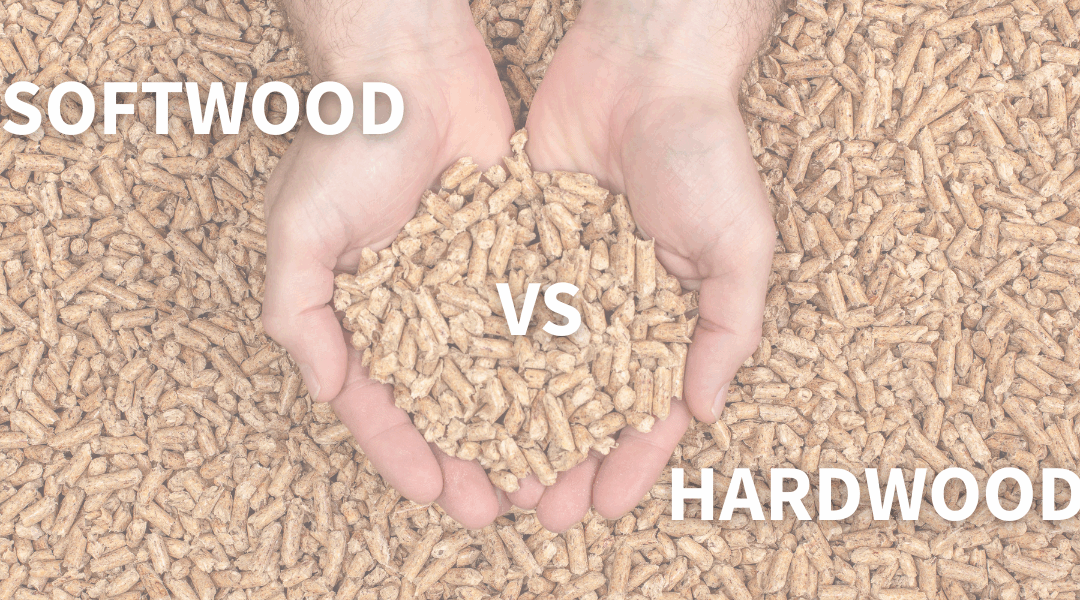Softwood vs Hardwood Pellets: Which Heats Better?
If you use a pellet stove or boiler to heat your home, chances are that at one point you’ve asked, softwood vs hardwood pellets, what’s better? Many homeowners assume hardwood is always superior, just like with traditional firewood. But when it comes to wood pellets, the story is a bit different.
Let’s break down the differences, including heat output (BTUs), ash content, cost, and overall performance, so you can make the best choice for your home.
Heat Output: Softwood Pellets Take the Lead
It might surprise you, but softwood pellets typically produce more heat (BTUs) than hardwood pellets. That’s because:
- Softwood trees like pine and spruce have higher resin content, which delivers more energy when burned.
- Unlike firewood, pellet density is uniform (due to compression), so energy differences come directly from the wood species.
On average, softwood pellets produce anywhere from 8,500 to 9,000 BTU’s, whereas Hardwood puts out around 8,000 to 8,500. While that may seem minimal on paper, that extra heat output from the higher BTU’s can make a big difference in your pellet usage one some of the coldest nights over the winter.
Ash & Cleanup: Softwood Pellets Often Produce Less Ash
It’s a common myth that hardwood always burns cleaner. In reality, many softwood pellets create significantly less ash, meaning:
- Less frequent emptying of your ash pan
- Fewer clinkers and better airflow in your stove
- Less maintenance overall
High-quality softwood pellets are often lower in ash simply because the raw material is cleaner and more uniform. This is because manufacturers use clean sawdust, free from bark and debris. The lighter composition of these pellets often results in lower ash content by weight.
Cost: Similar Price, But More Efficient
Years ago, hardwood pellets were generally the slightly cheaper option. Today, with improvements in pellet manufacturing, softwood and hardwood pellets are typically priced about the same.
But since softwood tends to produce more heat per pound, you can end up using fewer pellets over the season—saving money in the long run.
When comparing prices:
- Look for consistency in pellet length and diameter (helps feed smoothly).
- Check for low moisture content (under 8%) on the bag specs, regardless of hardwood or softwood.
Why We Recommend Softwood Pellets
When you look at the full picture, softwood pellets burn hotter, have a cleaner operation, and are far more efficient. They are often the best value for heating your home. It’s why many of our customers here in New Hampshire and along the seacoast specifically ask for them year after year. See below for a direct comparison between the two pellet types:
| FEATURE | SOFTWOOD PELLETS | HARDWOOD PELLETS |
| BTU’s (Heat Output) | 8,500 – 9,000 BTUs | ~8,000 BTUs |
| Ash Production | Typically very minimal | Can be high depending on manufacturer |
| Ignition | Lights faster, burns bright | Burns slower, longer coals |
| Cost Efficiency | Better heat output per dollar | Comparable upfront cost |
Order Premium Softwood Pellets Delivered to Your Home
At North Atlantic Fuels we deliver top-quality softwood pellets, such as Wood & Son’s Premium Pellets, by the ton right to your driveway. We even wrap your pellets on study wooden pallets to keep them protected from the weather until you’re ready to use them.
Call us today at 603-945-5305 or order online and see the difference softwood pellets can make in your stove this winter.
Request a Delivery
Get reliable, hassle-free firewood & wood pellet delivery at the best prices in Maine & Southern New Hampshire.

76 Depot Road. Epping, NH 03042
(603) 945-5305

